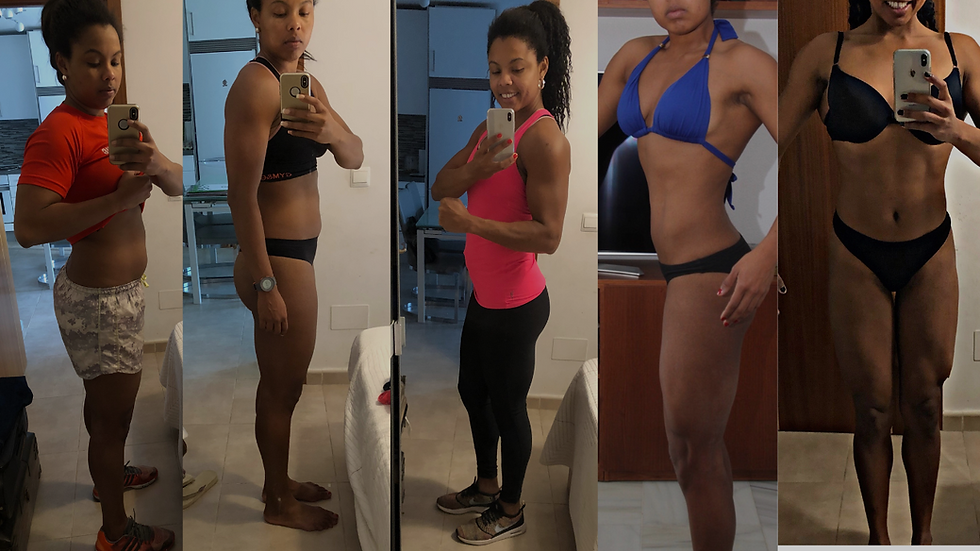Hypothyroidism: 8 Years Living With It and What I’ve Learned About My Body, My Mind, and My Energy
- Angeles

- Jul 22
- 3 min read

Living with hypothyroidism
Eight years ago, I was diagnosed with hypothyroidism. Back then, I had no idea how much it would change my life. It wasn’t just about taking a daily pill. It was (and still is) a whole journey of learning, understanding my body, fighting for my energy every single day, and never giving up.
The exhaustion that never left
What hit me the hardest at first was that extreme fatigue, like I was carrying a backpack full of bricks all day long. I slept, I rested, I ate well… but I was still drained. Sometimes I could barely stay awake at work or while training. It was an inner, silent struggle—because on the outside, everything seemed “fine.”
I learned to listen to myself. And to stop blaming myself. It wasn’t laziness, it was my thyroid. That shift in perspective changed everything.
Starting treatment… with doubt and patience
I started on a low dose of Euthyrox. First 25 mg, then 50… and little by little it went up. Today, I take 125 mg daily, and finally—exactly one year ago—I started to truly feel good. That alone makes me emotional. It didn’t happen overnight, or even in a few months. It took consistency, blood tests, doctor visits, and above all, self-love.
The supplement mistake
There was a phase when I wanted to do everything “right.” I took tons of supplements, without thinking about how they’d affect my thyroid. Spoiler alert: they made things worse. I felt this awful pressure in my throat, like a constant lump. It was scary. I didn’t understand what was going on until an endocrinologist explained that certain supplements (like iron, calcium, and even magnesium at the wrong time) can interfere with levothyroxine absorption. Lesson learned: less is more—and you need to know what you’re taking and when.
The pill isn’t just any pill
Yes, the medication is important. But how you take it matters too. It took me a while to realize I needed to take it on an empty stomach, same time every day, no coffee, no smoothies, no food, no other supplements. Just water. And patience. At least 30–60 minutes before eating. Once I started doing that consistently, my body began to respond.
Food and movement: invisible allies
I found that certain foods help and others don’t. For example:
I avoid too much soy or raw cruciferous vegetables (like raw cabbage or broccoli).
I focus on eating clean, real food with enough protein, healthy fats, and no fear of carbs.
I stay well hydrated—super important.
And I move every single day, even when I feel tired. Because even though it sounds contradictory, moving actually gives me more energy.
Knowing your body is power
If you’re reading this and something sounds familiar (extreme fatigue, mood swings, dry skin, hair loss, unexplained weight gain, a lump in your throat…), please, get a full thyroid panel: TSH, T3, T4, and antibodies. It often goes undiagnosed. And catching it early can change your life.
My message to you
Today, eight years later, I can truly say that I know my body better than ever. Every day, I work to take care of it, give it what it needs, and keep going—even on the tough days.Because not everyone understands what it’s like to live with hypothyroidism…But if you do, I want you to know you’re not alone.And yes, you can live well, you can work out, feel energized, smile, and feel like yourself again.
All it takes is time, knowledge, good doctors, and above all—patience and self-love.
Thank you for reading. If this helped you or resonated in any way, share it. Because it could change someone’s life—someone who doesn’t even know they have hypothyroidism yet.







Comments